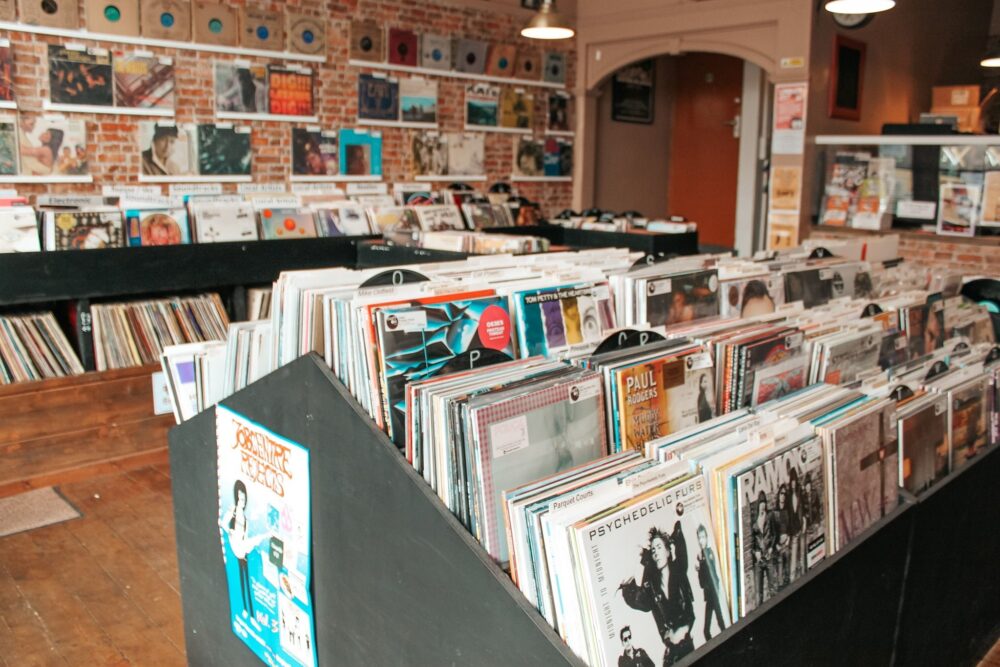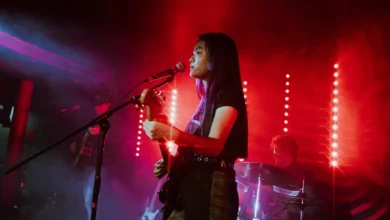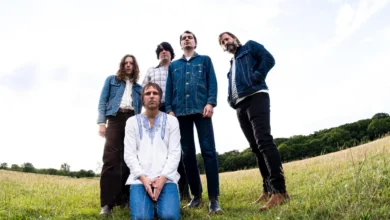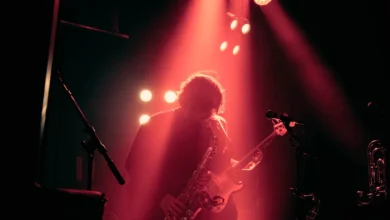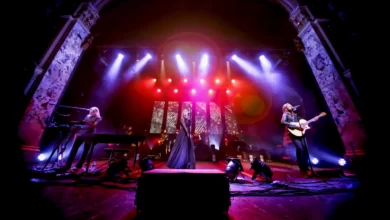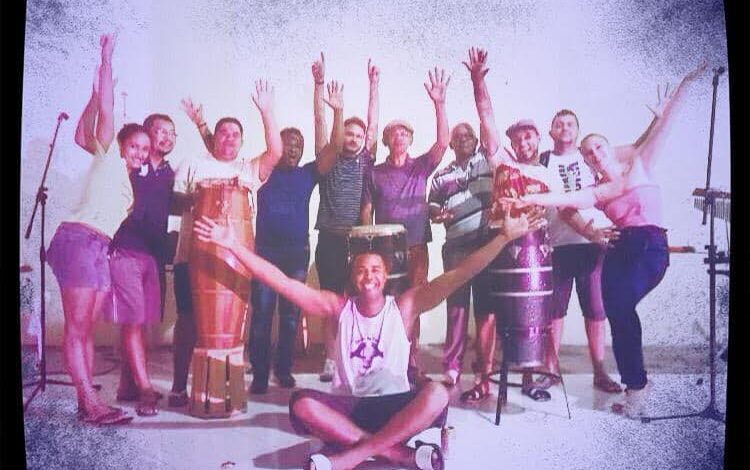
In Conversation – Carlo Variola (Ocean Waves Brasil Project)
Carlo Variola is the driving force behind Ocean Waves Productions, which is truly an international project. Carlo has travelled the world, spending time in Liverpool and currently working on the next chapter of the Ocean Waves legacy. Michael Fell caught up with Carlo to find out all about the Ocean Waves Brasil Project.
Liverpool Noise: Hey Carlo, you’re currently based in Brazil and keeping up the fantastic Ocean Waves Project. How’s it going over there and do you feel like the project itself has had a boost since you moving back and being closer to the music’s roots?
Carlo Variola: Hi! Yes at the moment I am living between Brazil and Italy (my country of origin). I will continue the work with my label Ocean Waves Productions everywhere I go, everywhere there is interesting music to produce, every country has its different music roots. In Brazil I am working at my first World Music project called Ocean Waves Brasil. We mix the afro-brazilian music of Candomble with other sonorities. As Candomble is a Brazilian religion based on the ancient knowledge of the Yoruba and Bantu African cultures then yes I think that a project like ours must be born and developed in Brazil where Candomble is part of the daily life of millions of people. So I think that the boost for the project you were talking about before is more like a seed than a boost itself in this case. I think that Candomble could be considered the seed of this project and Brazil would be the right land for this seed to sprout.
LN: This style itself, how old is it and how important is it to understand not only the history but also the context into which it was born and developed?
CV: It is very difficult to say how old this style is. Candomble music in its traditional form is composed by percussions and chants and from what I know that is exactly the most primordial form of music so I guess that this kind of music (with different languages and meanings) is thousands of years old. Before starting this project I already knew I wanted to go back to the roots of music itself.
It is been said that music was born in Africa and having seen the incredible mastery of rhythm they have in drumming I easily believe it. Music probably originated from the innate human need for expression but also as an indispensable element that helps people to lead back to God while praying and dancing. Music in that meaning is an instrument to connect with mysticism.
The story of Candomble is unfortunately linked to pain and oppression due to slavery. Candomble was born in Brazil between the African slave communities and there, oppressed people from different tribes and cultures have been successful in defending and preservating their cultures and beliefs – often merging them between each other and then also merging them with indios knowledge. This is the reason why in Candomble there are several different rhythmic percussion patterns, most likely coming from all the way from West Africa.
It is very important to understand the context and the history. Candomble is a religion of resistance that thanks to the countless sacrifices of its people managed to survive despite the hate, the violence and the contempt of the colonizers. Things got better compared to the past but Candomble and its people still suffer an high degree of bias here in Brazil.
The fact that all the members of the Ocean Waves Brasil band are part of the religion helped me a lot to dig more into it both musically, culturally and historically.
LN: What would you say was the reason was for you dedicating yourself to the Ocean Waves Project and the music of Candomblé?
CV: Ocean Waves Brasil’s project is something I have in mind for about ten years. But first I dedicated my time to know this religion reading some books too but mainly participating at their celebrations where I always been respected and treated very good. There I learnt a lot about their culture and living experiences and talking to the people of afro-brazilian communities has been a key element to understand the world of Candomble, including its music.
I bet you do not know yet what it means to hear Candomble drums playing for hours and hours, sometimes all night long. I will not say anything about it because it is something someone should try for themselves, as it is subjective too. The only thing I can say is that the sound of Candomble drumming is extremely powerful both for our body, mind and soul.
One reason to start this project was my curiosity about the relationship between sound and the brain.
Another reason is because Candomble music is also made for dancing, dancing for hours and I always liked to play or produce music that makes people dance. The groove in a song for me is often more important than the melody. Another reason is because I have been to many celebrations and I felt on my skin the power of their drumming, that is probably a good enough reason to start a project like this for a producer.
LN: You’ve been moving this music style through into modern times, linking and collaborating with the likes of Moodymanc and Germanager to name a few. How do you feel progression like this is important for any musical style to stay current, and did your time in Liverpool help you with this?
CV: Almost all the tunes of the project will have more than one version. I am taking care of mixing all the traditional versions. I decided to work on traditional versions at the beginning firstly as a sign of respect for Candomble culture, religion and music. I did not feel comfortable to come here in Brazil from Europe and immediately dismantle their music and pick the elements where I wanted to do what I want. That it can happen afterwards but at the beginning I felt it was important as a first step to present their music in its traditional form or almost; I could not resist to spice it up a bit with few sampled and electronic sounds.
Afterwards, once I finish my work with the traditional versions I will start to produce my own music, using elements of traditional music and mixing them with other influences, let’s see what is going to come out from that, undoubtedly something crazy, unusual and out of whatever type of comfort zone.
Yes I believe it is important to somehow keep music in modern times adding fresh elements.
I am so happy I decided to open up to other producers to work on the remixes. Until now I had the luck to collaborate with Moodymanc from Manchester, Germanager from Liverpool and Leames from France, whose incredible Oxaguian remix will be our next release soon in February.
Opening to other producers made the project more interesting and international and I take the chance to remind everyone that our doors are open for producers from every part of the World.
About Liverpool it would need a separate chapter, a book apart to talk about it.
Liverpool helped me with everything musically speaking, even before living there. Since I was a baby I grew up listening to The Beatles and British music. I can easily say that musically I am not Italian, nor Brazilian, musically I was born in the U.K., more precisely in Liverpool.
Living there has been a dream come true for me and definitely I will come back to work on some more music there next.

LN: Having listened to both the traditional tracks and the remixes, they’re both incredible but it really lends itself well to lots of interpretations in the music. What’s next on the horizon is there anything you’d like to see happen in the near future?
CV: I said to all remixers that they could do what they wanted with their remixes, I have been lucky until now because I literally loved all of what they produced. I did not feel like giving directions and limits working on such experimental music, I only talked a little about the religion to them, the characteristics of the different deities called Orixas and general information.
In the near future I would like to collaborate with even more producers from different parts of the world, we started to have proposals to organise live events here in Brasil and then I started to work on a very ambitious project, involving world music, mysticism and dance.
LN: You talk about the benefits of this project and spreading the music’s positive energy, but in particular for the awareness of the afro-brasilians in Brazil who often suffer from prejudice. Have you found that music is a good link in helping to open the eyes and minds in Brazil?
CV: You said it right, spreading Candomble music is like spreading something very deep and positive despite the fact that most of people are not used to listen to this kind of music which is basically composed by only two elements, drumming and chants. Nowadays people are used to listen to more articulated music, composed by various instruments, coloured by effects and sounds and so I thought it was interesting to go in the opposite direction, to go back to the roots of music, the one played with percussion, looking at the sky and dedicating to the spirits of nature.
Unfortunately there are also people full of prejudices that link Candomble music and religion to something negative, even satanic. That could not be farther from the truth but it is very complicated to change minds which are already full of prejudices.
The music is always a good, an amazing link to bring two or more different population groups closer together. Traditional Candomble music is far from what the most of people listen to nowadays, even here in Brazil. So I though that remixes, different interpretations of the traditional music made by producers from different parts of the world could also help to create a bridge between the Candomble followers living in afro-brazilian communities and the people, in Brazil or in another parts of the world, that still do not know this incredible culture.
LN: Amazing, we wish you all the best for the future and with the Ocean Waves Project!
CV: Thanks a lot for the opportunity, all the best for you too mate.
Check out the Ocean Waves Productions YouTube channel for all their latest music/video releases.
Stream the latest single Oxaguian now via all major platforms.
Michael Fell



